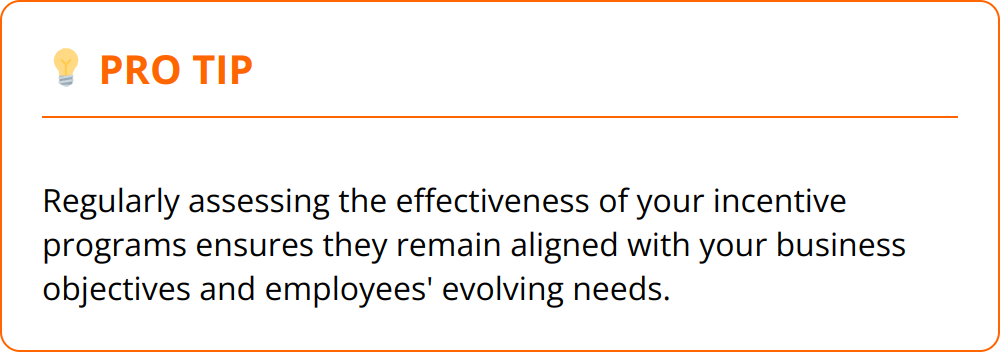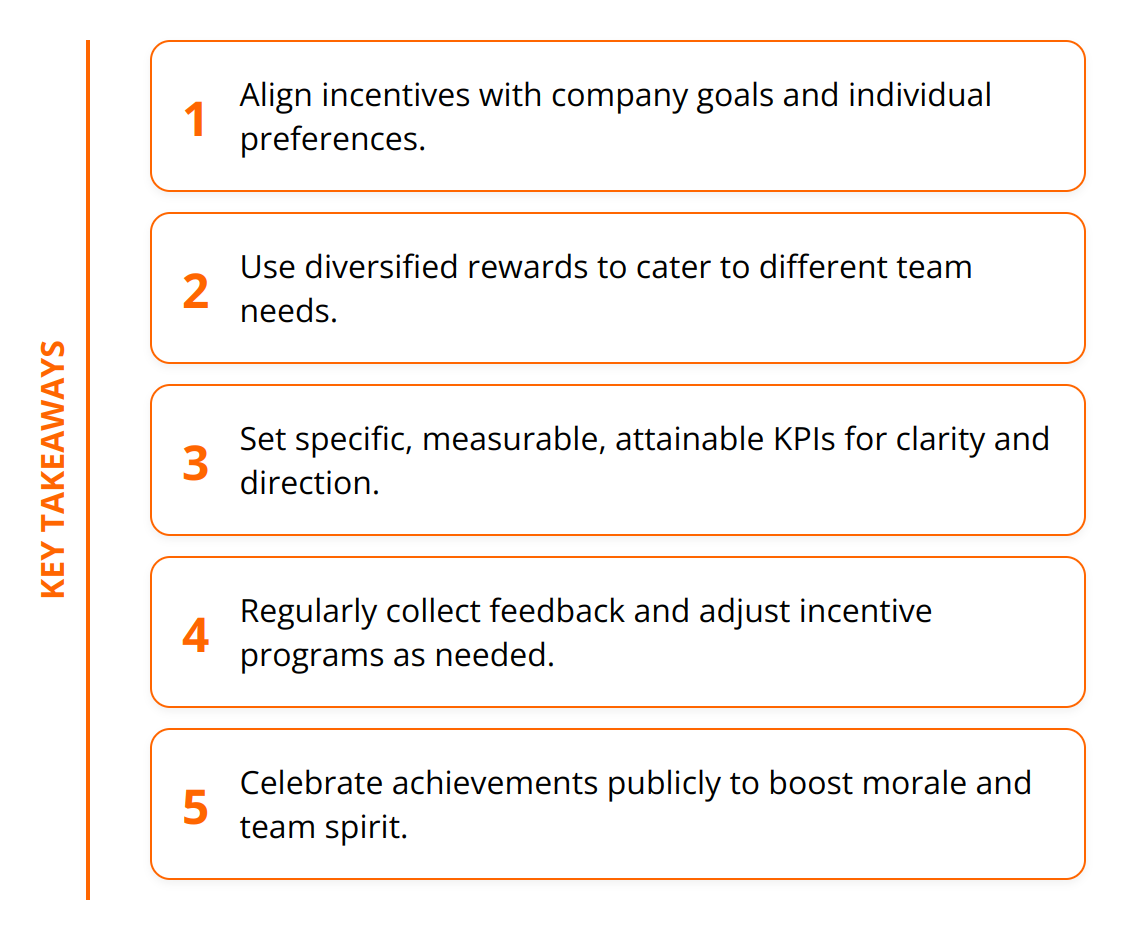
At Reward the World, we understand the transformative power of well-crafted employee incentive programs, especially for small and medium-sized enterprises (SMEs). These programs are not just tools for appreciation but catalysts for business growth and employee satisfaction. They have proven to drastically increase motivation, engagement, and loyalty among team members. Let’s explore how SMEs can design, implement, and benefit from effective employee incentive strategies via this article: Why SMEs Should Implement Employee Incentive Programs.
Boosting SME Growth with Employee Incentives
Employee incentive programs are not just beneficial; they are essential for any SME looking to thrive in today’s competitive marketplace. The benefits of such programs extend far beyond mere employee satisfaction—they touch every facet of business operations, driving growth, and fostering a positive company culture.
Driving Employee Motivation and Engagement
First and foremost, employee incentives act as a powerful motivator. When employees know their efforts are recognized and rewarded, they’re more likely to go above and beyond in their roles. This isn’t just speculation—it’s backed by data. According to a study by Gallup, highly engaged teams show 21% greater profitability. That’s a compelling reason for any SME to adopt an incentive program.
However, it’s not just about throwing rewards at your staff; it’s about crafting a program that aligns with your company’s goals and values. For instance, for sales teams, a commission-based incentive might drive performance. For creative teams, recognition and opportunities for professional development might be more motivating. The key is to understand what motivates your team and tailor your incentives accordingly.
Boosting Employee Retention
The cost of replacing an employee can be substantial, with estimates suggesting it can reach up to twice the employee’s annual salary. In this context, improving retention rates through incentives is not just sensible; it is financially prudent. By recognizing and rewarding your team’s achievements, you’re not only incentivizing high performance but also building loyalty. This sense of belonging can significantly reduce turnover rates.

For instance, flexible working arrangements and work-from-home incentives have emerged as highly valued perks. Incorporating such options into your incentive program can make your SME an attractive place to work, thereby retaining top talent.
Cultivating a Positive Company Culture
The ripple effect of a well-implemented incentive program on company culture cannot be overstated. It creates an environment where employees feel valued and part of something greater than themselves. This, in turn, fosters teamwork and collaboration, as individuals are motivated to contribute positively to the company’s culture and goals.
Team-building activities, for example, can double as both incentive and culture-building tools. They encourage camaraderie and can remarkably improve team spirit. Remember, a positive company culture leads to satisfied employees, and satisfied employees are more productive and committed to the company’s success.
To dive deeper into tailoring incentive programs to your team’s needs, exploring employee recognition ideas can provide further practical guidance.

Quick Tips for SMEs Implementing Incentive Programs:
- Align incentives with your company goals and values.
- Diversify incentives to cater to different team needs.
- Conduct regular reviews to assess the effectiveness of your incentive programs.
- Communicate transparently about how employees can achieve these incentives.
- Celebrate achievements publicly to boost morale and foster a sense of accomplishment.
In conclusion, the implementation of thoughtfully designed employee incentive programs represents an investment in your SME’s future. It’s a strategy that pays dividends in enhanced motivation, loyalty, and a vibrant company culture—key ingredients for sustained business growth.
Crafting Effective Incentive Programs
To drive the success of any small and medium-sized enterprise (SME), creating effective employee incentive programs is not just a good practice—it’s a strategic necessity. A well-designed incentive program catapults productivity, fosters loyalty, and accelerates overall business growth. Here lies a step-by-step approach that ensures your program not only resonates with your team but also aligns with your business objectives.
The bedrock of any effective incentive program is identifying the Key Performance Indicators (KPIs) that truly matter to your business. These indicators could range from sales targets and customer satisfaction scores to project completion times and quality indicators. The golden rule here is specificity. Vague KPIs lead to vague results. Thus, setting clear, measurable, and attainable goals is paramount. When employees know precisely what’s expected of them and how their efforts contribute to the larger picture, their engagement levels spike.
After establishing your KPIs, the next step is diversification of rewards. A one-size-fits-all approach to incentives rarely captures the diverse motivations within your team. For some employees, monetary bonuses might be the biggest motivator, while for others, extra vacation days, professional development opportunities, or public recognition could carry more weight. Offering a variety of incentives ensures that you cater to different employee needs and preferences, which in turn increases the program’s overall effectiveness. Remember, the more personally relevant the reward, the more powerful its impact.
Lastly, like any strategic initiative, an incentive program needs regular evaluation and adjustment. This isn’t a set-it-and-forget-it situation. Business goals evolve, and so do your employees’ needs and motivations. Regularly collecting feedback from your team and analyzing program outcomes allows you to fine-tune your incentives. This adaptability not only keeps the program fresh and impactful but also signals to your employees that their voices are heard and valued.
In summary, by clearly identifying KPIs, diversifying rewards, and regularly evaluating the program, you can build an incentive system that truly resonates with your employees and drives your business forward. It’s a continuous loop of feedback and improvement that keeps your team motivated and aligned with your business goals.
For more insights on employee engagement and practical tips on making your program a success, exploring resources like employee recognition tips can be incredibly beneficial.
Quick Tips:
- Set specific, measurable, and attainable KPIs.
- Diversify rewards to meet different preferences.
- Regularly collect feedback and adjust the program as needed.

.
Keeping these principles in mind will set the foundation for an incentive program that not only boosts morale but also aligns closely with your business objectives, driving growth and success in the competitive SME landscape.
Success Stories in Incentives
A Story of Increased Productivity
One small online retail company introduced a targeted incentive program aimed at boosting sales and enhancing customer service. Employees received bonuses for surpassing sales targets and for customer feedback scores above a certain threshold. Within six months, the company reported a 27% increase in sales and improved customer satisfaction scores by 15%. The program was designed to directly align with the company’s growth goals, ensuring that rewards were both meaningful to employees and beneficial to the company. This case demonstrates the tangible impact a well-structured incentive program can have on productivity.
Elevating Employee Satisfaction and Retention
A tech startup faced high turnover rates, which they combated by implementing a comprehensive incentive program that included stock options, flexible working hours, and an enhanced professional development budget. Over a year, they saw a significant reduction in employee turnover by 40% and an uptick in job applications by 25%. Feedback gathered indicated a marked increase in job satisfaction, with many citing the personalized nature of the incentives as a key factor. This example underscores the importance of catering to employees’ individual needs and preferences to boost retention and satisfaction.
Incentives Sparking Innovation
An SME specializing in software development introduced an innovation challenge, promising a mix of cash bonuses, extra vacation days, and public recognition for teams that developed viable new products or processes. Within a year, the company had successfully launched two new products, generated by employee-led teams, which opened up new revenue streams and resulted in a 35% revenue increase. This initiative exemplifies how incentivizing creativity can lead to substantial business growth and foster a culture of innovation and collaboration.
Key Takeaways:
- Tailor incentives to align with both company goals and employee preferences for maximum impact.
- Comprehensive incentive programs can dramatically reduce turnover rates and enhance job satisfaction.
- Encouraging innovation through incentives can lead to significant business outcomes, including new products and revenue streams.
Exploring further about employee recognition strategies can provide additional insights into crafting impactful incentive programs.
These real-life examples illustrate that thoughtful incentive programs are more than just rewards—they are strategic tools that can drive SMEs toward achieving their business objectives, enhancing employee morale, and cultivating a culture of excellence and innovation.

Final Thoughts
Employee incentive programs are more than just a token of appreciation—they are strategic investments in your company’s future. For small and medium-sized enterprises (SMEs), these programs are especially vital. They fuel growth by motivating employees, enhancing retention, nurturing a positive company culture, and ultimately driving business success. The power of well-crafted incentives to transform an organization cannot be overstated. They ensure employees feel valued, which in turn boosts their productivity and loyalty to the company.

In an era where the competition for top talent is fierce, and employee expectations are continuously evolving, SMEs must leverage every tool at their disposal to attract and retain the best. Implementing or revamping employee incentive programs is not merely an option—it’s a necessity for SMEs aiming to thrive in today’s business landscape.
We at Reward the World encourage all SMEs to take a closer look at their current incentive strategies. Are they aligned with your business objectives? Do they cater to the diverse needs and motivations of your team? It’s crucial to periodically assess and adjust your incentive programs to ensure they remain relevant and effective.
For those seeking to enhance their employee recognition and incentives strategies, Reward the World offers a dynamic global incentives platform that integrates seamlessly with your existing systems. Our platform can help elevate your employee recognition efforts, making it easier for you to reward and motivate your team efficiently and effectively. With a vast array of rewards options and robust analytics, we’re here to support your business in creating a more engaged and satisfied workforce.
In summary, the implementation of strategic employee incentive programs is an undeniable driver for SME growth, employee satisfaction, and competitive advantage. It’s time for your business to harness the full potential of these programs. Remember, your employees are your most valuable asset. Investing in their happiness and motivation is investing in the heart of your business. Let’s not just aim for short-term gains but strive for long-term prosperity by creating an environment where everyone feels appreciated, motivated, and aligned with your company goals. We hope you found this article: Why SMEs Should Implement Employee Incentive Programs, insightful.
